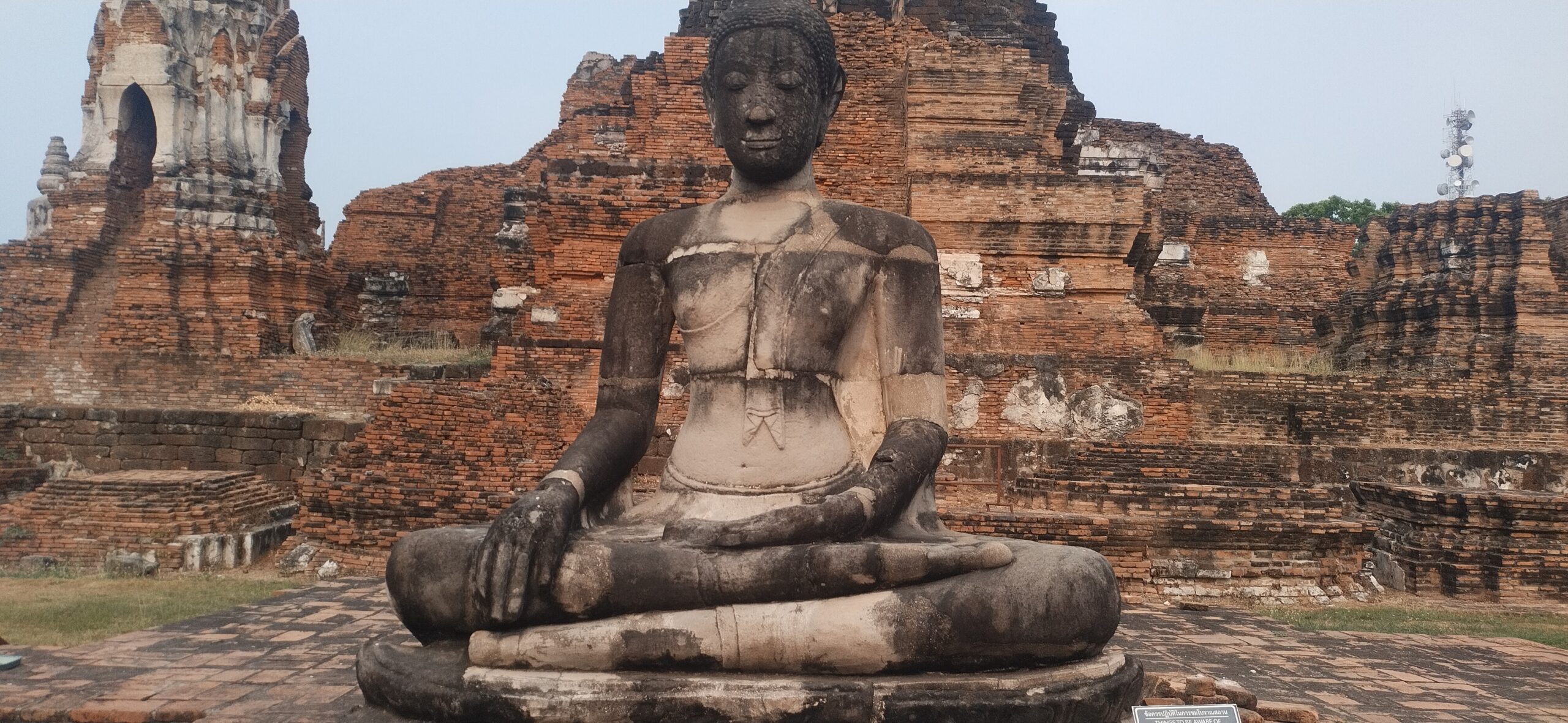Today, staying emotionally stable and resilient amidst the constant challenges we face can feel like an uphill battle. Many people turn to professional help, seeking guidance from psychologists, psychiatrists, and counselors to navigate through life’s difficulties. We all experience negative emotions—anger, sadness, pain—and at times, it can be overwhelming. But is there a way to take control over our emotions and remain calm in the face of adversity?
Silent Meditation Retreat in Thailand
Last year, I had the opportunity to attend a silent meditation retreat at a Buddhist temple in Southeast Asia. While the living conditions were harsh, with the temple nestled deep in the jungle, the experience was incredibly eye-opening. I learned invaluable lessons during this retreat, and I’m grateful for the wisdom it provided. The teachings I encountered there gave me a powerful tool to cope with life’s constant challenges and helped me develop a deeper sense of emotional control and resilience that I carry with me today.

Wat Suan Mokkh Monastery, Thailand

Female dormitory
For beginners, adapting to these practices can be challenging due to the harsh living conditions in the wilderness. However, achieving fulfillment and inner peace by leaving behind the comforts of the modern world represents a profound spiritual journey. While it is difficult for us as novices, for the monks, it is a path to a truly happy and fulfilled life.

My cell in the monastery
The four noble truths are the foundations of all Buddha teachings.
The FIRST Noble Truth
The first noble truth, known as dukka, originates from the Pali language, the language of the Buddha, and it translates to “suffering.” This truth highlights that suffering is inherent in life. Birth is suffering, aging is suffering, sickness is suffering, and death is suffering. But it goes beyond physical pain—dukka also encompasses the inevitable dissatisfaction and discontent that arise from impermanence. Even experiences that seem pleasant in the moment, such as joy or pleasure, are still ultimately suffering because they are fleeting. When we attach ourselves to these transient pleasures, we set ourselves up for suffering when they inevitably fade away. This realization encourages us to reflect on how everything in life is temporary, and how this impermanence is at the heart of our emotional struggles.
The SECOND Noble Truth
The second noble truth, samādāya, which means “origination,” addresses the root cause of suffering. This truth reveals that craving is the cause of our suffering. We long for permanence in a world that is constantly changing. This craving—whether it’s for material possessions, success, relationships, or even for certain feelings or states of mind—creates a false sense of security. We construct an illusion of control over our lives, believing that we can hold on to things that are naturally fleeting. This misunderstanding leads to continual disappointment and pain, as nothing in life remains the same forever. The second noble truth also introduces the concept of upādāna, meaning attachment or clinging. It explains how we develop attachments to people, things, or ideas, and these attachments inevitably cause suffering because, like all things, they will eventually change, fade, or be lost.
The THIRD Noble Truth
The third noble truth, nirodha, focuses on the cessation of suffering. It suggests that by recognizing and letting go of craving, we can stop the cycle of suffering. When we begin to understand that craving itself is the root of our discontent, we realize that what we often perceive as “reality” is actually a distorted version of it. By releasing our attachments and embracing the impermanence of life, we can free ourselves from the grip of suffering and find peace. Nirodha teaches that true freedom comes from accepting the reality of change and letting go of the need to control or cling to it. Through this understanding, we can attain inner peace and emotional resilience, as we no longer struggle against the natural flow of life.
The FOUR Noble Truth
The four noble truth is ‘magga’, also known as the ‘Eightfold Path’. It’s a set of eight principles that can help us liberate from craving.
The first three deal with Wisdom:
- Right Understanding – Do we judge others? Do we try to understand them?
- Right Intention – Do we have positive thoughts?
- Right Speech – Do we use the right words at the right moment? Do we gossip or ill speak?
The other two principles deal with conduct:
- Right Action – How do we behave?
- Right Livelihood – What do we do for a living? Do we harm animals or other people?
Last three are more technical and deal with the mental discipline.
- Right Effort – Do we invest the right amount of efforts to make all these principles work together?
- Right Mindfulness – Are we mindful of the small things in our daily lives?
- Rightfulness Concentration – Do we practice meditation?
Personal sessions with a nun
In one of my one-on-one sessions with the nun at the monastery, I asked her about the Buddhist perspective on death. She shared an example: if someone called to tell her that a friend had died in an accident, she would feel some initial sadness but would also be mindful of the impermanence of life and the inevitability of death. While we can’t change these facts, we can choose to be fully present and spend meaningful time with our loved ones while they are still with us.

With the nun who guided me in my first steps in Buddhism and meditation
This experience at the monastery has profoundly transformed my life, increasing my awareness of various aspects of it. Most importantly, it has helped me develop what I now consider emotional stability. Meditation has become a powerful tool for connecting more deeply with my inner self and building the strength needed to navigate life’s challenges. I view meditation as a bridge to a true connection with ourselves, which is crucial for creating a fulfilling life and nurturing healthy relationships.
Planning a trip to Thailand?
Looking to take the next step in your journey? For travel experiences that foster mindfulness and self-discovery, check out Trip.com for amazing deals on peaceful retreats and wellness destinations. If you’re planning your next adventure, don’t miss out on fantastic stays and unique travel options—Homestay or exploring budget-friendly options on Hostelworld. Staying with locals can be a transformative way to immerse yourself in a new culture while practicing mindfulness and emotional growth.






